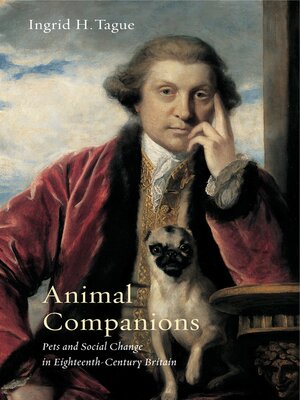Animal Companions
ebook ∣ Pets and Social Change in Eighteenth-Century Britain · Animalibus: of Animals and Cultures
By Ingrid H. Tague

Sign up to save your library
With an OverDrive account, you can save your favorite libraries for at-a-glance information about availability. Find out more about OverDrive accounts.
Find this title in Libby, the library reading app by OverDrive.



Search for a digital library with this title
Title found at these libraries:
| Library Name | Distance |
|---|---|
| Loading... |
Animal Companions explores how eighteenth-century British society perceived pets and the ways in which conversation about them reflected and shaped broader cultural debates.
While Europeans kept pets long before the eighteenth century, many believed that doing so was at best frivolous and at worst downright dangerous. Ingrid Tague argues that for Britons of the eighteenth century, pets offered a unique way to articulate what it meant to be human and what society ought to look like. With the dawn of the Enlightenment and the end of the Malthusian cycle of dearth and famine that marked previous eras, England became the wealthiest nation in Europe, with a new understanding of religion, science, and non-European cultures and unprecedented access to consumer goods of all kinds. These transformations generated excitement and anxiety that were reflected in debates over the rights and wrongs of human-animal relationships.
Drawing on a broad array of sources, including natural histories, periodicals, visual and material culture, and the testimony of pet owners themselves, Animal Companions shows how pets became both increasingly visible indicators of spreading prosperity and catalysts for debates about the morality of the radically different society emerging in eighteenth-century Britain.







